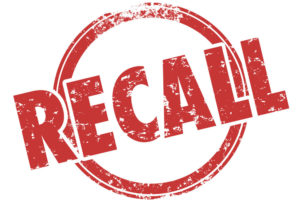 About 4,500 drugs and devices are recalled yearly in the United States. Prior to these recalls, they were approved by the FDA, widely injected, implanted and ingested by customers. The FDA does not initiate a recall, they simply express concern and leave it up to the manufacture to execute a recall. The FDA can only mandate the recall of a device, vaccine or nicotine product.
About 4,500 drugs and devices are recalled yearly in the United States. Prior to these recalls, they were approved by the FDA, widely injected, implanted and ingested by customers. The FDA does not initiate a recall, they simply express concern and leave it up to the manufacture to execute a recall. The FDA can only mandate the recall of a device, vaccine or nicotine product.
A recall is defined by the FDA as “a method of removing or correcting products that are in violation of laws administered by the U.S. Food and Drug Administration.” Reasons for a recall could be anything that is part of the drug product; such as—damage to packaging, particles in product, mislabeling and many other defect issues.
In early 2020, U.S. Rep. Rosa DeLauro reintroduced a bill called the Recall Unsafe Drug Acts, this would grant the FDA the ability to issue a mandatory recall on a drug product. Although, it was never decided if the bill would become a law, pharmaceuticals claimed they still comply with the FDA requests for recalls. The FDA may also compel a mandatory recall if it finds a product made of human cells or tissue poses a serious risk of infection to humans or does not protect against communicable diseases. Vaccines and blood products fall into this category.
Usually, a company will voluntarily recall a product once the FDA raises concerns about it. If a company discovers a problem on its own, they will contact the FDA; so it can get reviewed and start the steps of the recall process.
There are 3 classes of recalls:
Class 1 Recall—This is the most serious recall. Meaning, this product could cause serious adverse events or death. Many lifesaving drugs fall into this classification.
Class 2 Recall—Most recalls fall into this classification. This class can be extremely serious, but not life-threatening.
Class 3 Recall—These products are not likely to cause extreme injuries or long-term issues.
Other recall classes include:
Market Withdrawal—These are products that have minor or no violations. The manufacturer will pull these drug products from the market in all, or just pull them to correct the violation.
Medical Device Safety Alert—Manufacturers and the FDA will issue an alert when medical device could cause serious harm. Pulling a medical device is also considered a recall.
InQuest Science’s Identifier Software follows all USP<790> and USP<1790> guidelines, giving step-by-step instructions, aiming improve the inspection process and reducing drug recalls.
To learn more about drug recalls, recall classifications and strategy, read the full article on drugwatch.com

